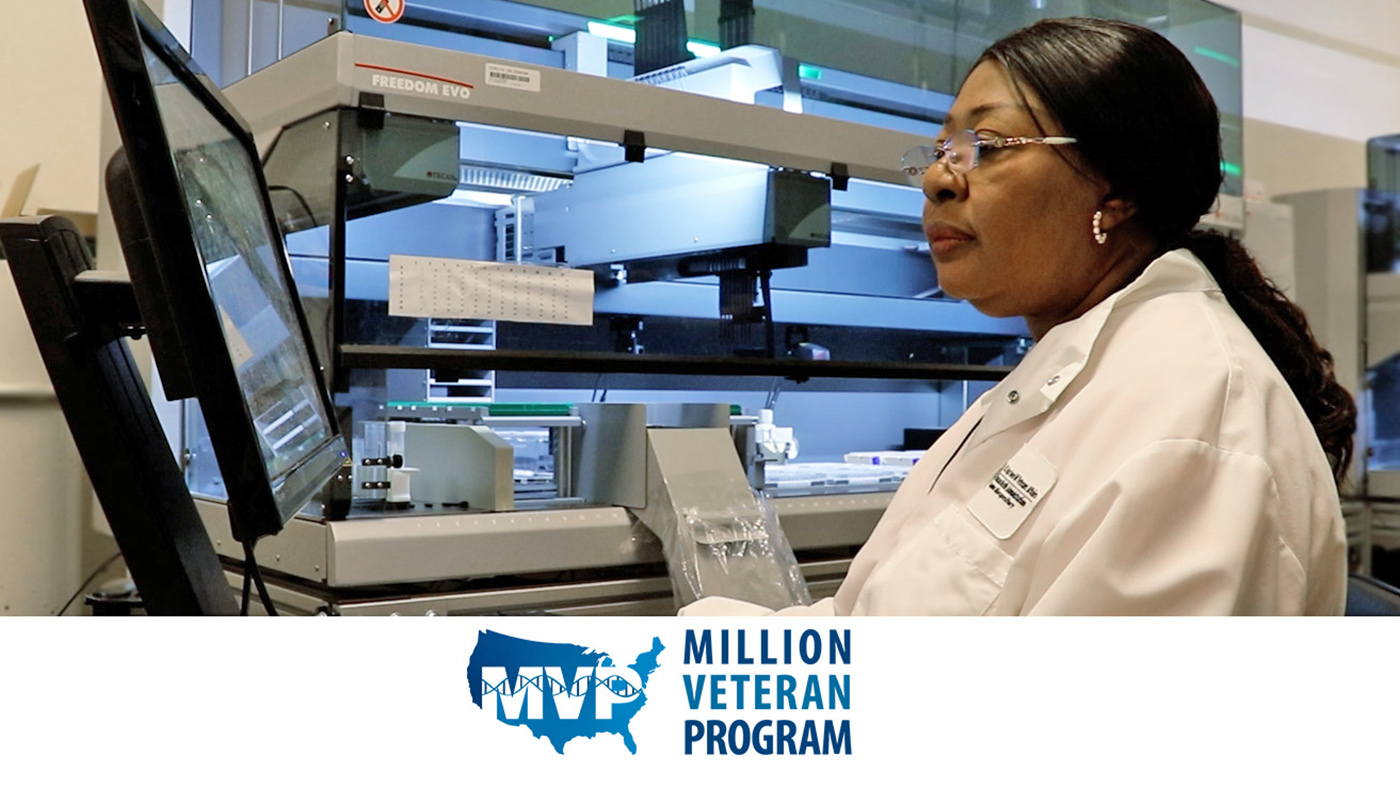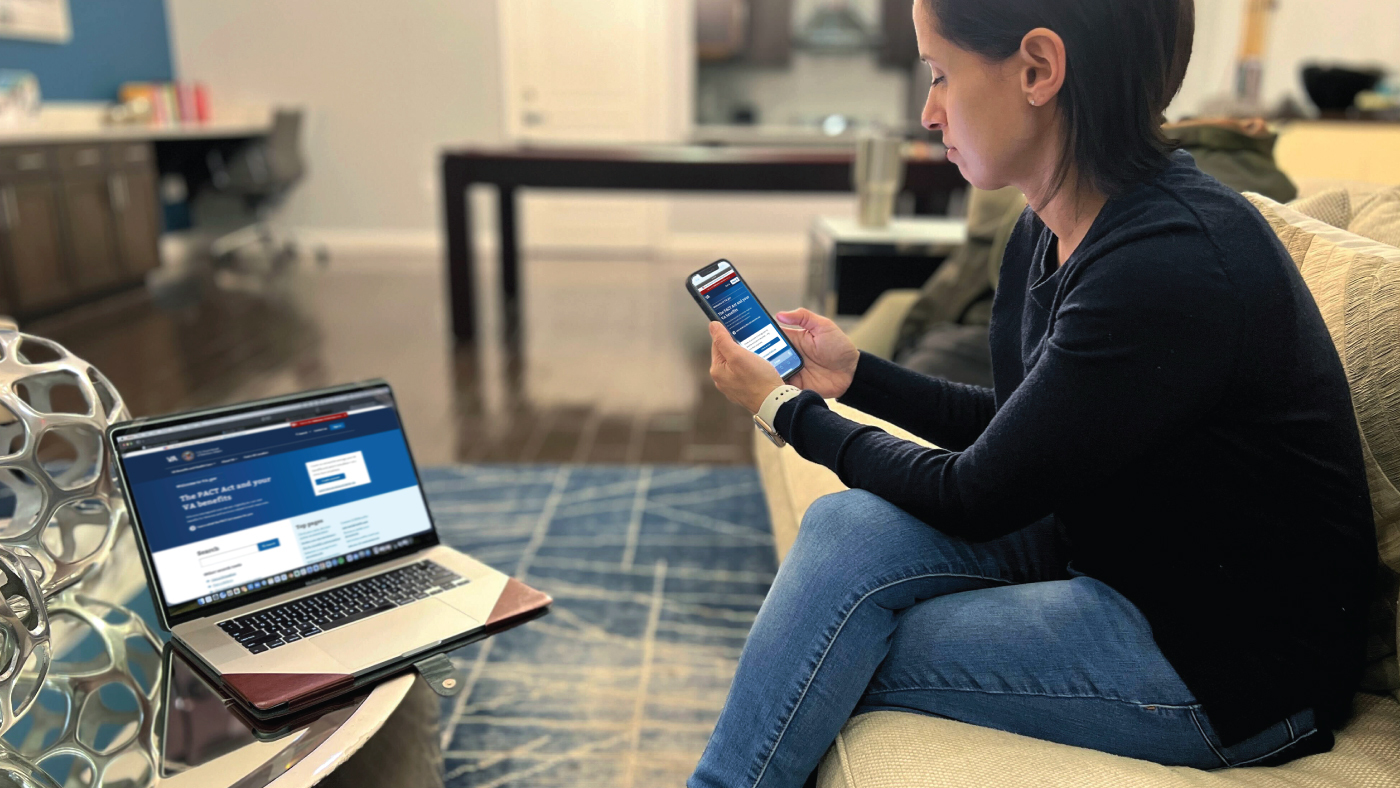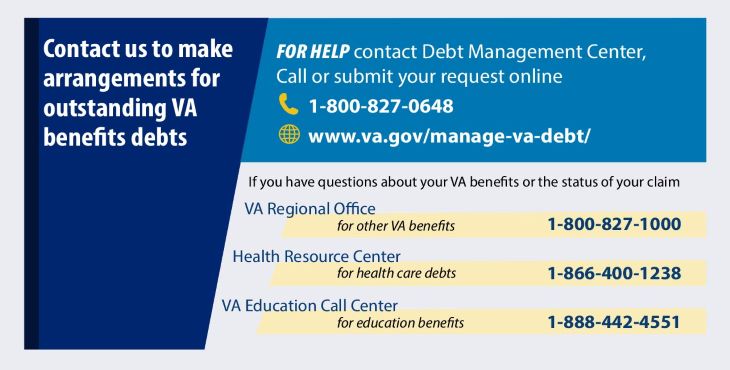14,800.
That’s the number of people who die every year from unintentional overdose of opioids, commonly known as painkillers— it’s higher than the number of overdose deaths from cocaine and heroin use combined and higher than the number of automobile deaths. That shocking fact was shared with me as I toured the Minneapolis VA Medical Center to learn more about pain management, and how our staff in Minneapolis is revolutionizing team-oriented care.
Our nation didn’t arrive at an opioid crisis overnight, so it’s important to understand how we got here. Professional associations in the 1990s besieged medical journals and health care providers with the idea of untreated pain as a medical crisis. Those charts you’ve probably seen at the doctor’s office—faces with pain numbers—went up across the country, and pharmaceutical companies pressed doctors to fill more opioid prescriptions.
From 1999 to 2010, prescriptions for opioids increased by 400 percent, according to the Center for Disease Control. As a result, overdose deaths also rose 400 percent. Patients sought opioids and gravitated to doctors willing to prescribe them despite side effects like sedation and decreased testosterone. Widespread addiction and an alarming rise of overdose deaths prompted the medical community to rethink its approach to opioids, such as OxyContin, as a silver bullet to pain management.
The pain management staff at the Minneapolis VA Medical Center, led by Dr. Peter Marshall, transformed mounting medical research into action. In 2011, the team established the Opioid Safety Initiative to bring down the use of OxyContin and high dose opioids among chronic pain sufferers—usually Veterans with issues like chronic back and neck pain and arthritis. Other formulary medications, along with a greater emphasis on behavioral chronic pain management like yoga and exercise, were deployed to help Vets deal with their ailments.
The results are drastic. As of May 2013, OxyContin use at the Minneapolis VA Medical Center has plummeted 94 percent, and high dose opioid use has fallen 55 percent since the implementation of the Opioid Safety Initiative. More behavioral pain management and generic medications have also been utilized.
The model of care itself has been transformed as well. Dr. Marshall’s staff took cues from team-centered treatments of issues such as diabetes and applied it to pain management in a system called stepped care management. A full spectrum of care brings medical professionals together to holistically target and treat chronic pain affected Veterans. It’s a model that shows promising signs for not only VA’s medical system, but the private health care system at large.
There are so many advances in medicine throughout VA’s 152 medical centers that it’d be impossible to track them all. This is just another example of great minds coming together to help solve pressing issues affecting not only Veterans, but society in general, getting them back to living their lives as easily—and as painless—as possible.
Topics in this story
More Stories
The findings of this new MVP study underscore the importance and positive impact of diverse representation in genetic research, paving the way for significant advances in health care tailored to Veteran population-specific needs.
VA reduces complexity for Veterans, beneficiaries, and caregivers signing in to VA.gov, VA’s official mobile app, and other VA online services while continuing to secure Veteran data.
VA has resources available to ensure natural disasters do not make the already challenging situation of owing a VA debt worse. If you are experiencing financial hardship and are unable to repay your VA debt because of a natural disaster, relief options are available.








I’m taking all prescribed drugs by the VA for depression, sleep, migraine headaches, sinus and last blood results my liver is damage 10 times the normal, it’s difficult for me to live without medication, feel worse than before feeling in deep depression, I’m 90% disable veteran, I feel like my days are counting nowhere to go.
The Dr.s at the Puget Sound Health Care System are fulfilling a direct order to lower pain medications. One,… to save money and the other is fade out pain management training requirements for Primary Care Providers. The Pain Management Directive is located here: http://www.va.gov/PAINMANAGEMENT/docs/VHA09PainDirective.pdf
It is effective until October 2014. If your primary care provider has not been credentialed for this “pain management directive” it is your “right” to request to be seen by either the pain management team or to be referred out to a pain specialist by fee services.
My primary care Dr. even wants to lower my blood pressure medication because I am on two kinds, lisinopril and amblodipine. His rationale is that just raising my blood pressure by 20 points is not that big of a deal. And beside’s it will save the VA money. It’s Patient Advocate time.
People, this does NOT say the pain medications are being taken away. It is so easy to blame the VA for everything. It would be wonderful if people in pain would use ALL the tools at their disposal to manage pain. We have a culture of “give me a pill and make me better.” Different combinations of pain treatment that include nonpharmaceuticals can be effective and personalized. You have chronic pain. It isn’t going anywhere. Learn to manage it using ALL the tools available to you. Relying on pills is the lazy way. And yes, I have chronic pain.
I’m pleased to see that the VA is taking the issue of opioid dependence and overuse seriously. Pain can be a result of emotional stress or physical trauma, as well as functional issues, and drugs should not be the only approach taken for chronic pain management.
Behavioral approaches, such as yoga and exercise, are an important step in the right direction. As a holistic healer, life coach and spouse of a combat veteran, I recommend mind/body practices including mindfulness meditation, breath-work, and Qi Gong, along with complementary therapies, including massage therapy, acupuncture, Reiki healing (which is also a mind/body practice) reflexology and others. Emotional stress will exacerbate chronic pain; mind/body practices and complementary therapies are effective for promoting relaxation and stress relief, leading to a decrease of pain and discomfort.
A customized program for each veteran is necessary, since some people respond better than others to certain therapies or approaches. Basically, what I tell my clients (some of whom are veterans) is that we are working together to create a “toolkit” of wellness approaches to help them reduce stress and pain, as well as improve functionality and well-being.
Mind/body practices and complementary therapies are also more cost-effective because they can lead to a reduction in visits to the doctor or ER, decreased need for medications, and many of them can be taught to veterans and their families for ongoing self-care.
I agree that too many people are on pain meds but you CANNOT group all people together and take the pain meds needed for people who are say, amputees, diabetics with nerve damage, etc. Many of these people are unable to do yoga or the exercises necessary for management….plus some of the vets are unable to meditate due to mental issues. What are you going to do with those patients? Let them live in pain? The VA has for many years put a regulation or control in place and made it across the board. You have to treat each ‘individual’, not consider them in a ‘group’. I’m afraid that the VA will do just that. NO MORE pain meds for any of them. Just a faster way to kill off the old vets to make room for the newer ones, plus save money.
As a debilitating problem of persistant non-relenting pain aggravated my life I found too many reasons to try and point to factors like intense repetitive motion labor jobs(like baking,and industries in textiles)sent me frantically scouring the medical fields for relief.
Too often, however, spondylolisthesis and bi-lateral pars defects helped me attain relization that I was not the only one facing stern mouthed providers attributing addiction and abuse to countless high seeking illicit use fakers that make it hard to achieve a tolerable level of pain to have a justifiable doctor/patient relationship. I know it’d be easier to live without them but I can’t glimpse a scene from an all too futuristic lifestyle for me.
I’m trying to titrate back from a higher dose for therapeutic reasons and this is a pain I would that anybody could go through it for me as it really is difficult. I’m just greatful I’ve been able to finally find a counseling team rather than a denying facility.
It is good to see that alternate forms of pain relief are being utilized now. I wish we had something like that here. Another problem I see a lot is the really low-income vets like myself cannot afford to go the major VA facilities for weekly classes, etc., gas prices being so high. Besides opioids, I use nerve pain meds, muscle relaxers, etc., along with exersizes, stretching and a TENS unit. I have dogs and raise finches, which helps me stay active as much as possible. My current primary is perhaps the best I’ve had in years-she never seems to get frustrated at me.
Please share this program with the OKC VAMC-we needs this in Oklahoma! Thanks!
This is a mistake. The people that are making this decision do not suffer from pain. There is no representation for those who suffer from pain in this call. I leave you with this thought: No mater what the decision is (more drugs or less drugs), there will be problems with either decision.
Did they ask how many vets were still in pain? It was a money saving plan. As a disabled vet they have tried this BS on me for years. The pain is still there. They want me to manage it. I wish the people making these decisions were in as much pain as I am.
Reducing dependency on drugs is a good thing, but so is quality of life. Pain can and does make some people’s lives nearly unbearable.
This blog doesn’t report on the outcome of that drastic reduction of pain medication prescriptions. There’s not one quote from the veterans affected by this change. Is the new regimen actually working for them?
Almost 4X as many people died from suicide last year, over 7 million people die from Cancer each year…and 14k is your big concern?
Sometimes medication is the only way to deal with pain. Without it my pain levels climax to the point of nausea. While there is a miniscule percentage of people abusing their medication most of it only take it as prescribed as it is a necessity.
Yea! As a retired RN, who worked at a VA Hospital, and now has chronic back pain. I gave up opioids when I figured out that they were what was giving me big headaches and made me feel bad. I have had major back surgery and am fused from T-10 to S-4. I have compression fractures of T-8&9 on top of the fusion. I am in pain 24/7, just worse at times. The surgeon had to remove vertebrae L-2 as there was not enough to bone graft. A spacer, that moves with me, was inserted in L-2’s place & it contributes to my pain when it causes muscle spasms. I’m currently using a TENS unit to see if it will decrease the pain. So far, 3 weeks, it seems to be helping. I take tramadol twice a day @ Skelaxin in the am & that seems to help greatly. I am able to attend 3 exercise classes per week at the local Senior Center and to drive and work on my computer. I was an R.N. for fifty years prior to retiring. Most of the time doing hands-on patient care.
My health care professionals are very careful in prescribing narcotic pain medications which I appreciate, and I do obtain enough to manage my pain and remain alert. All medications at my home are locked up and unavailable to others. I also use hypnosis to assist in pain management. I would suggest the VA looking into medical marijuana in low doses to manage pain also. I am told that it does aid in pain management and is not addictive. I have never used marijuana or any other illicit drug for any purpose, however I have looked at and had advice from professionals outside the VA regarding Medical Marijuana. If used properly it can be effective in pain management.